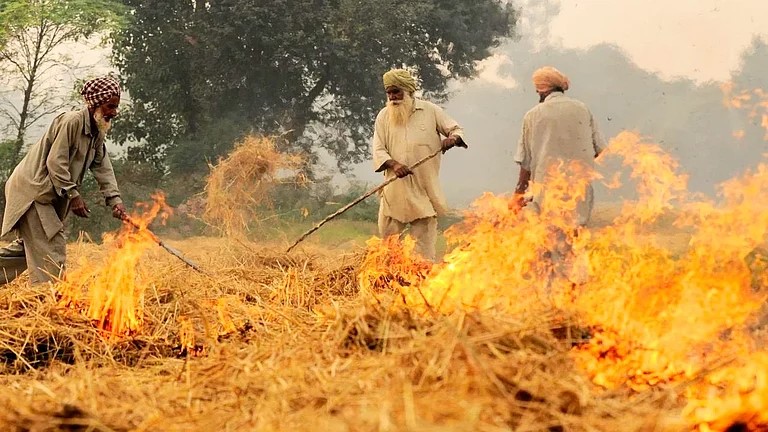 Every winter, northern India chokes under a toxic haze. The culprit is no mystery—stubble burning. Farmers, pressed for time and money, set their fields ablaze to clear land for the next crop. The result? Smog-filled skies, a public health disaster, and rising carbon emissions.
Every winter, northern India chokes under a toxic haze. The culprit is no mystery—stubble burning. Farmers, pressed for time and money, set their fields ablaze to clear land for the next crop. The result? Smog-filled skies, a public health disaster, and rising carbon emissions.
Meanwhile, across the globe, the United States shows a different path. There, rice stubble is not burned—it is plowed back into the soil, fed to cattle, or transformed into bioenergy and compost. Why? Because the system makes it possible. Strong environmental laws, farmer incentives, and modern technology turn waste into wealth. Farmers comply not out of fear, but because it pays.
India has tried bans, fines, and token subsidies. None have worked. Why? Because punishing struggling farmers while denying them affordable alternatives is a recipe for failure. Instead of blaming farmers, policymakers must support them with cooperative machinery banks, bioenergy plants, and direct subsidies that actually reach smallholders.
The truth is simple: the U.S. model works because it combines strict enforcement with real incentives. India’s approach fails because it asks farmers to bear the cost of sustainability alone. If India wants to breathe cleaner air, it must stop treating farmers as culprits and start treating them as partners.
The smoke is avoidable—the solution is already proven. What India needs is the will to follow it.